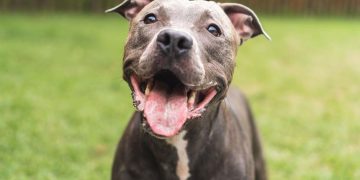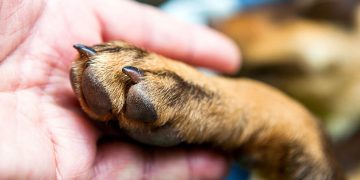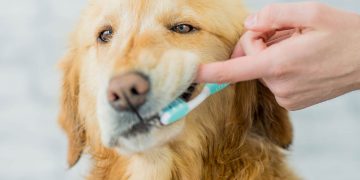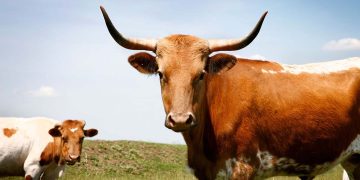The fall season is a time of year when many people feel the need to relax and enjoy the colder weather. Unfortunately, this can also be a time for your dog to get sick and feel bad if you don’t take him on regular walks or give him other kinds of exercise.
Here are some tips for keeping your dog healthy in the fall:
Get your dog vaccinated or get a flu shot.
The first step in keeping your dog healthy is to get them vaccinated. Vaccinations are the best way to protect your pet, and they’re especially important during the fall months when more people are out and about and spreading germs. The American Veterinary Medical Association recommends that dogs be vaccinated against rabies every three years and that they also receive a yearly booster for distemper, parvovirus, hepatitis virus (A & B), leptospirosis, bordetella bronchiseptica (a respiratory disease affecting puppies), coronavirus and parainfluenza virus. Your veterinarian should be able to provide a full list of recommended vaccines based on your dog’s age and lifestyle.
If possible, try to find a vet who has experience with the type of dog you own; if not all vets can treat all breeds equally well (and some even specialize in certain ones), it may help you narrow down your options for where you go for vaccinations so your dog gets treated properly each time around.
Give your dog a deworming treatment.
As the weather gets colder, you’ll want to keep your dog safe from parasites that can be transmitted through the air or ground. De-worming treatments are available for purchase at most pet stores and pharmacies. Be sure to consult your veterinarian before administering any medication or supplements; some dogs may have allergies or other health issues that make treatment inadvisable.
If you’ve never given your dog a de-worming treatment before, ask a vet which treatment is right for him (or her). The type of worm infection will depend on where you live and what kind of outdoor activities your dog enjoys doing most often. Your veterinarian can help guide this decision based on his knowledge of local diseases and other factors like climate conditions and seasonal patterns that affect infections at certain times throughout the year.
Administering a de-worming pill is relatively straightforward: just follow these simple steps:
- Put the pill in something tasty like peanut butter or soft cheese so it sticks better when swallowed
- Make sure that you don’t force too much down into the throat at once because this could cause choking risk if too much comes out through nose instead mouth (which happens when people try eat while reading email on phone while walking along busy sidewalk).
Keep your dog away from ants.
Ant bites can cause an allergic reaction in dogs, which is particularly dangerous for animals with a weakened immune system. Ants can carry parasites and diseases that can be transferred to your dog. If you notice that your pup has been bitten by an ant, make sure to remove the ant’s stinger as soon as possible before it starts to release its venom into your dog’s body.
Protect your pet from ticks and fleas during tick season in the fall.
As the weather cools down, ticks are more likely to be active. Ticks can carry a number of diseases, so it’s important to keep your dog safe from ticks in the fall and winter.
How do you know if your dog has been bitten by a tick? Some signs include:
- Lumps or bumps under your dog’s skin (they may feel like fluid-filled cysts)
- Hair loss around the bite site
- Itching and scratching at their skin (this is an indication that they’re allergic to tick saliva)
If you find a tick on your dog’s body, remove it with tweezers as soon as possible. If there’s any chance that you might have touched the tick before removing it from your pet, wash your hands thoroughly afterward in hot water and soap.
Take care of your dog’s coat in the fall and winter weather.
As the weather gets cooler and we transition from summer to fall, you may notice that your dog’s coat is getting a bit dry and dull. The good news is that you can easily keep it looking great with a few simple grooming tools.
- Use a conditioner to keep your dog’s coat soft and shiny during the fall and winter months. Try one of these:
- A spray on detangler will help cut down on knots in your pet’s hair without causing any damage to their skin or coat. This makes it a great option if you have an active dog who likes playing outside in the cold weather!
- A spray on shine will add some sheen back into your pet’s fur when he or she comes inside after playing outside for awhile!
Schedule an annual checkup for your dog, especially if he’s older or has a chronic illness.
It’s important to schedule regular visits with your veterinarian, even if your dog is young and healthy. Older dogs need more frequent checkups because they’re more likely to have health problems such as arthritis and diabetes, so it’s crucial that you keep tabs on any changes in their condition.
- Annual checkups are also important for overweight or obese dogs, since excess weight puts added strain on their bones and joints.
- If your pet has a chronic illness such as heart disease or diabetes, make sure that he gets his medications on time (and keeps up with them), along with regular veterinary care.
Make sure your dog gets plenty of exercise, even when the weather turns cold.
You should make sure your dog gets plenty of exercise, even when the weather turns cold. Exercise helps keep your pup’s joints and muscles strong, which is important for their overall health. Dogs who don’t get enough exercise can develop arthritis and other joint problems as they age—and the same thing can happen to humans!
If you’re planning to do more active exercises with your dog, like running or hiking, it’s a good idea to talk with a vet first about any potential risks posed by exercise in colder temperatures. Some dogs are more sensitive than others to extreme temperatures; if you have an older dog that has had a history of hip dysplasia or other joint problems, it might be better for them not to run around on icy pavement once winter hits.
Watch out for holiday hazards in the fall and winter, including chocolate, raisins and grapes, macadamia nuts, turkey bones and potential choking hazards such as small toys.
The fall and winter months bring a number of hazards to your dog’s health.
- Watch out for holiday hazards in the fall and winter, including chocolate, raisins and grapes, macadamia nuts, turkey bones and potential choking hazards such as small toys. Chocolate can be toxic to dogs; raisins and grapes can cause kidney failure in dogs; macadamia nuts are toxic to dogs; turkey bones are dangerous because they splinter easily and may lodge in a dog’s throat. Be aware that there are many other common household items that could cause harm if ingested by your pup: anything from string cheese sticks to peanut butter sandwiches and holiday decorations like tinsel or ribbon can be dangerous if ingested by your dog.
Check your pets’ paws regularly to protect them from any extreme weather that could harm their paws.
Check your pets’ paws regularly to protect them from any extreme weather that could harm their paws. Whether you have a short-haired dog or a dog with long hair, it’s important to check your pets’ paws for cuts and sores. Here’s how:
- Lift up the paw and gently pull on each toe in turn. Do this for all four feet and look for any abrasions or tears in the skin of their feet. If wounds are found, carefully clean them as best you can with warm water and soap (or antiseptic wipes if available) before applying an antibiotic cream such as Neosporin or Polysporin, then bandaging the wound until it heals sufficiently enough to move without pain or discomfort on its own merit
Your dog needs special attention as the seasons change to stay healthy and feel good all year long.
Dogs need special care as the seasons change. The fall and winter months bring with them a whole host of new problems for our four-legged companions:
- They need to be vaccinated, dewormed and protected from ticks and fleas if they are not already doing so. If your dog has any issues, such as an overweight condition or flea allergy dermatitis (FAD), this is also the time to address these issues so that your dog stays healthy all year long.
- Be aware of ants! Ants can be particularly troublesome in hot weather but their numbers increase tremendously during this time as well. When ants get into your house it’s important to take care of them immediately before they become established. Ants can also be brought in on shoes, backpacks etc., so make sure you check yourself thoroughly before going inside after being outside with your dog walking on ant-infested grass or dirt paths where they may have traveled through recently.
Conclusion
We hope this post has given you some great tips for keeping your dog healthy in the fall. If you have any other ideas that we haven’t covered here, feel free to share them with us in the comment section below.
Read More:

























